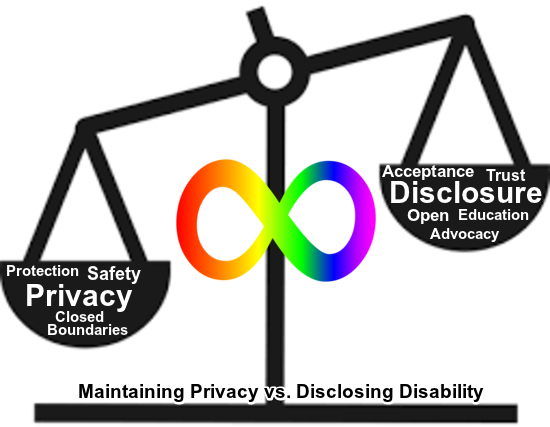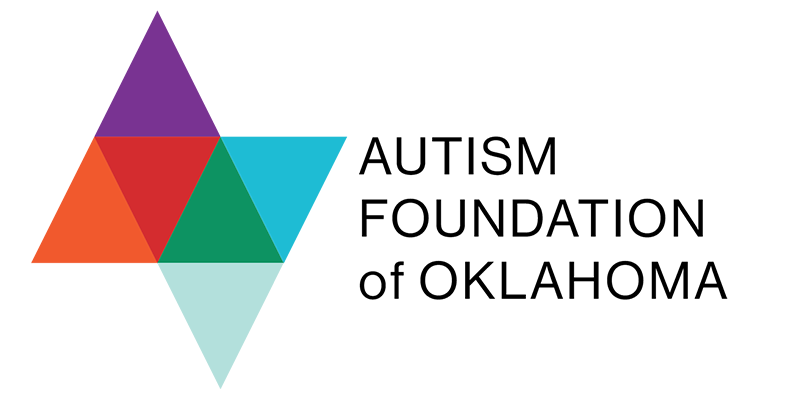
A common struggle that Autistic individuals face when applying for jobs and even within jobs is the decision to disclose their disability to hiring managers or supervisors. On the surface, it may seem obvious to disclose a disability because there are protections in place that allow for accommodations to be granted to those that want them. Underneath, however, harbors a psychological struggle that can make it difficult to decide whether or not to disclose. This struggle is what I call the Disclosure Paradox because it suggests that internal and external factors can mar a seemingly beneficial decision.
To better grasp the concept, it is important to define what stigma is before examining its complexity. Merriam-Webster defines stigma as a mark of shame or an identifying characteristic (Merriam-Webster, 2022). With this in mind, we can begin to see the underlying notions present when speaking about disabilities or Autism. In fact, the definition can apply to a wide array of things but can be harmful because of its attribution to Autistic individuals. Taken together, the stigma of Autism that is commonly assumed is that Autistic individuals have a mark of shame or identifying characteristic that makes them different from others. This attribution pours into both self-perception and what others perceive, which adds to the self-fulfilling prophecy that Autistic individuals do not live up to society’s expectations.
Speaking of expectations, it is essential to notice that the issue presented thus far is psychological and affects both the Autistic individual and other people, commonly interviewers. Namely, there are underlying assumptions made by recruiters that picture Autistic individuals as either incompetent or savants (Rosa, 2018). For example, media portrayals and stereotypical assumptions paint Autistic individuals as either needing too much support or nearly perfect for not a lack of social skills. As a result, these unrealistic expectations make it difficult for Autistic individuals to be authentic because they fear they may be unfairly treated or held to impossible standards.
Delving deeper, stigma is rooted in stereotypes which are collective opinions about groups of people and can lead to prejudice and discrimination if accepted and manifest in negative emotional reactions or actions (Mayer et al., 2021). As a result, Autistic individuals struggle with disclosing their disability because they do not want adverse treatment and unrealistic expectations thrust upon them. Collectively, this psychological battle being waged is indeed fought by Autistic individuals and can create battle wounds such as negative self-esteem and self-stigma. This more extreme version of stigma is personal and can cause lower self-efficacy and self-respect, resulting in hopelessness and decreased help-seeking (Mayer et al., 2021).
With this said, it makes the decision to disclose difficult because of competing interests that lead to varying outcomes. On the one hand, disclosing could affect social interactions, belonging, and psychological well-being if negatively received (Mayer et al., 2021). On the other hand, non-disclosure can seemingly protect from stigma but makes it more difficult to find support and lead to greater burdens to carry (Mayer et al., 2021). Once again, the disclosure paradox rears its head and shows the fears associated with disclosure. In fact, the main issue seems to stem from the uncertainty that accompanies it and how it will be received.
I understand the struggles of disclosure and have encountered the same hypotheticals that have kept me from disclosing and receiving the help I could have gotten if not for the uncertainties. However, there should be no uncertainty, and businesses need to accept that everyone is unique and has unique needs. There is no reason why protected classes need to feel that they will be adversely affected by disclosing, and it is something that needs to be addressed. The way forward involves reconfiguring workplace culture so that disclosure is another benefit of the workplace instead of a detriment that should be suppressed and ignored.
Brandon Orozco is the AFO Workforce Development Project Assistant and holds a BS degree in Psychology with a dual minor in Philosophy and Business Management. Brandon is currently pursuing a MS in Human Resource Management from Claremont Graduate University and was the founder and President of the Professionals in Human Resources Association (PIHRA) student chapter. Brandon is an Autistic self-advocate and has previous experience being a Talent Acquisition Team Lead for a rising tech startup and enjoys sharing his lived experiences and perspectives.
Sources
Mayer, L., Corrigan, W. P., Elsheuer, D., Oexle, N., Rüsch, N., (2021). Attitudes towards disclosing a mental illness: impact on quality of life and recovery. https://link.springer.com/article/10.1007/s00127-021-02081-1
Merrium-Webster (2022). Definition of Stigma. https://www.merriam-webster.com/dictionary/stigma
Rosa (2018). Why is the Autistic unemployment rate so high? https://thinkingautismguide.com/2018/02/why-is-autistic-unemployment-rate-so.html

